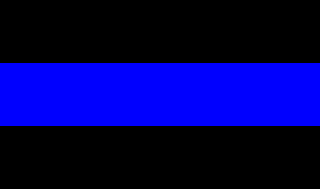Sometimes all that stands between civilization and anarchy is the preservation of culture.
After some crazy time, it feels good to be back doing something that's my own again. Even if it is recording my reactions to a hideously depressing documentary where a real man was robbed of twelve years of his life, part of them spent on Death Row, for a murder he didn't commit. It was one of those stark peeks into just how crooked the concept of justice can go when punishment is put ahead of justice. Edith James, who represented Randall Adams, said that there were really two major things going against Adams in the trial - one, that he wasn't a local and the other possible suspect was, and that he was old enough to be given the death penalty, and the other possible suspect wasn't. You can't have cop killers getting off scot-free, and David Harris was a juvenile at the time of the killing.
David Harris, who in tape at the end of the end of the film as good as admits to the murder of Officer Wood, is the culmination of the kind of laid-back "boys will be boys" Duke's of Hazzard philosophy. Sure, teenage boys get into trouble and raise a bit of Cain now and then. No need to wreck their whole lives. Even though David Harris was arrested multiple times for armed robbery, assault, attempted kidnapping, bragged about the killing of Officer Wood, threw the blame onto Randall Adams, then was ultimately given the death penalty for killing a man who tried to stop David from abducting his girlfriend during a home invasion. It's an odd question to pose at this point in time, since "Three Strikes" laws and mandatory minimum sentencing have been considered to ruin lives... after all, we've got people doing major stretches for marijuana possession. But then you've got the "We can't ruin a boy's life" with a boy who was what could be considered a menace to society. Where really is the line?
I thought this would be more about the police, but it did help free an innocent man. This is really much more about the justice system - the unreliability of eyewitnesses, the way evidence can be fudged if there's a point that people really want to prove, and the impact of emotional appeals over solid reason. Under the weight of the facts, there was absolutely no reason for Randall Adams to shoot Officer Wood, and plenty of reasons for David Harris to. But then the wagging finger "THE MAN IS SITTING RIGHT THERE!" by a woman who fancied herself a detective and the prosecution closing with a heart-stirring speech about the titular "thin blue line" that protects society did sway the jury.
Then the original subject of the documentary came into play - James Grigson. A quick game of match-up and a few questions about proverbs, and he was willing to declare an innocent man an incurable sociopath who should be put to death for the safety of society. And apparently did that so much that he was expelled from the American Psychiatric Association. James Grigson didn't seem to read many cases that weren't incurable sociopaths that should be put to death for the safety of society, with his "expert testimony" securing the death penalty for 167 people. So you have to wonder if there was some projection there.
Overall, this movie was chilling. The camerawork and recreations were cutting edge at the time, though now it looks more like Unsolved Mysteries. But Unsolved Mysteries was awesome. I usually like my movies more fun, but if you would just really love to get outraged, this is one to check out.

No comments:
Post a Comment